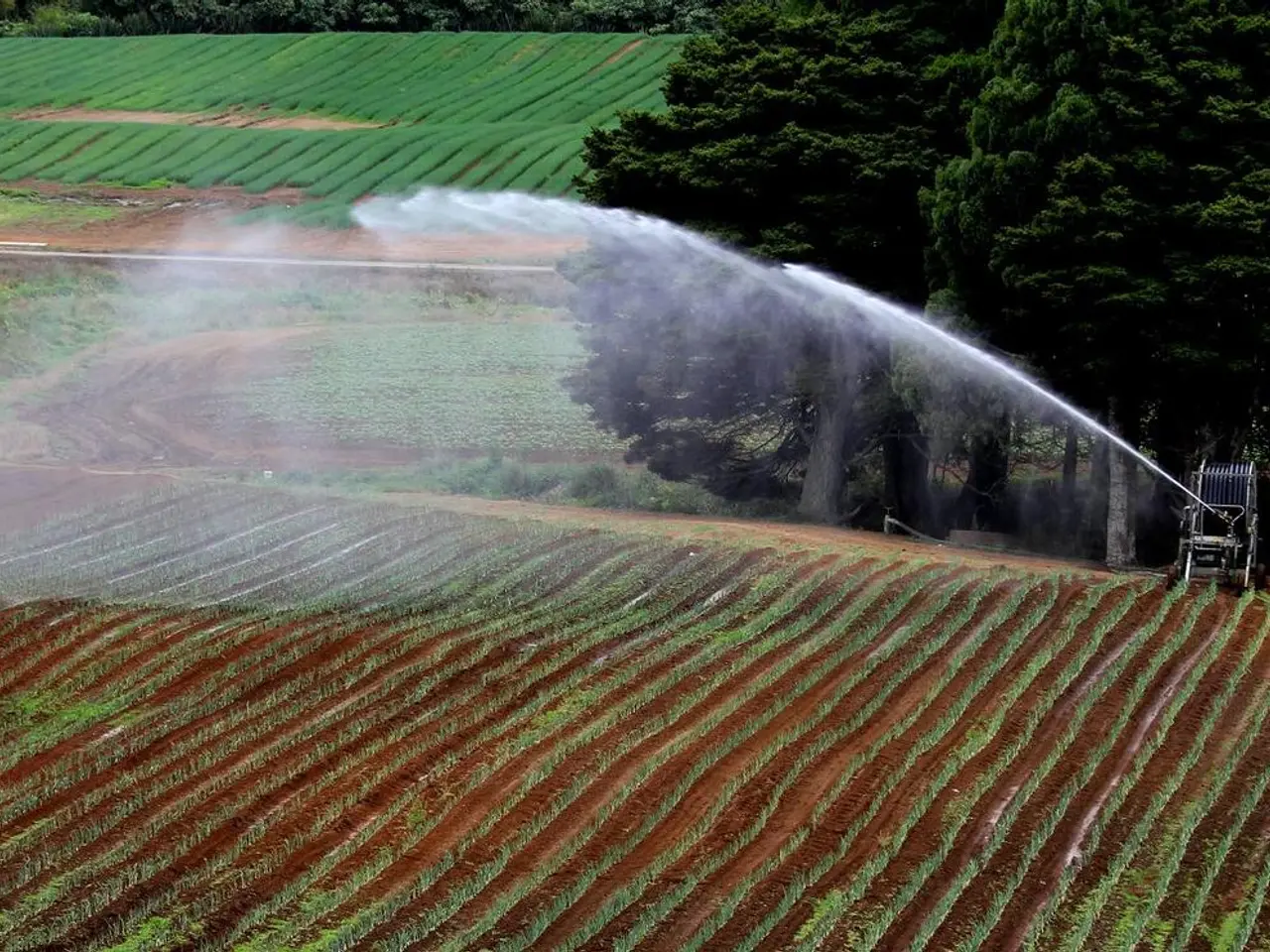Discontented sentiment among farmers, despite successful crop yields - Agricultural community remains discontented despite bountiful crop yields
Farmers in the Rhineland-Palatinate region of Germany are facing profitability struggles despite a good harvest in 2022, primarily due to cost pressures related to the Ukrainian conflict and Federal Government policies.
The ongoing conflict in Ukraine has had a significant impact on agricultural input costs, particularly for fertilizers and energy. As a major exporter of natural gas and fertilizers, Russia's involvement in the war has led to supply disruptions and price spikes, putting a strain on farmers' profit margins even when yields are strong.
Moreover, the Federal Government's policies aimed at energy transition and environmental goals may have increased regulatory burdens or shifted subsidies and support structures, adding to costs or limiting operational flexibility for farmers. While the specific policies are not detailed, the typical dynamic of balancing climate goals with economic viability is a topic of ongoing discussion in German agricultural circles.
Eberhard Hartelt, the president of the Farmers' and Winemakers' Association Rhineland-Palatinate South, has been vocal about the challenges farmers in the region are facing. He has criticized the Federal Government's refusal to introduce a special regulation for the minimum wage for seasonal workers in agriculture, and has sharply criticized over-regulation, including restrictions on fertilizers in certain areas.
Hartelt has also attributed the current struggles of farmers to a combination of weather conditions, low prices, higher costs, and additional regulations. He has demanded that operations must be relieved significantly due to the high operating costs, and has held the Federal Government accountable for the current situation.
The effects of the Russian invasion are still being felt today, according to Hartelt, as operations in Rheinhessen and the Palatinate have not been successful this year. However, farmers in southern Rhineland-Palatinate have achieved good yields in grain crops despite unfavorable weather conditions.
Despite these challenges, the business results of farmers in the region are declining sharply due to these factors. The struggles of farmers in Rhineland-Palatinate underscore that a good harvest alone doesn't guarantee farm income stability, and that external and policy-driven cost factors can erode earnings capacity fundamentally.
Community aid could prove crucial for farmers in Rhineland-Palatinate as they navigate economic hardships, given the rising costs due to the Ukrainian conflict and the impact of Federal Government policies on their profitability. In light of the ongoing discussions about balancing climate goals with economic viability, vocational training programs might offer a potential solution to help farmers adapt to changes and improve their operational efficiency.






